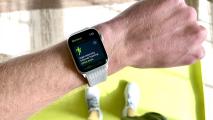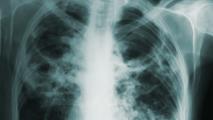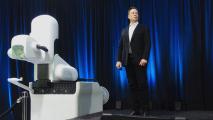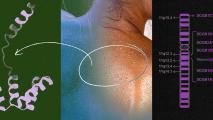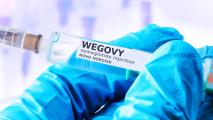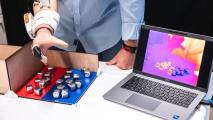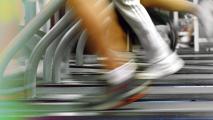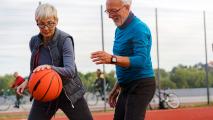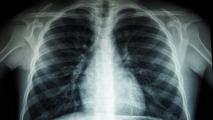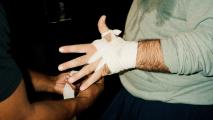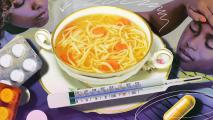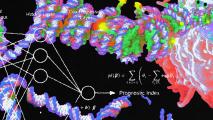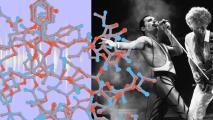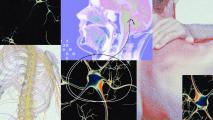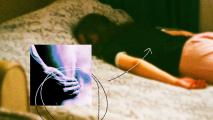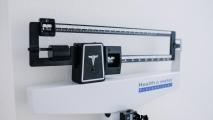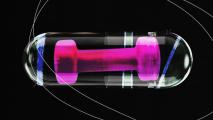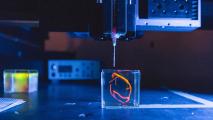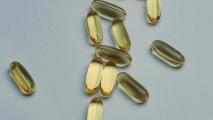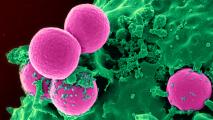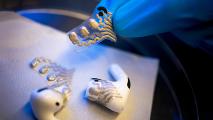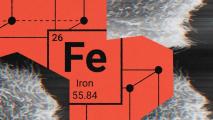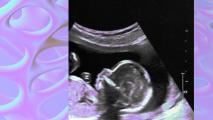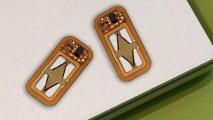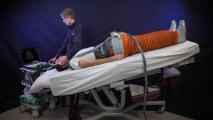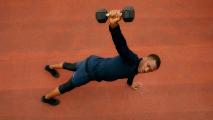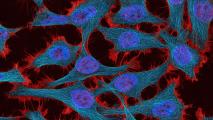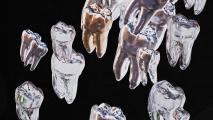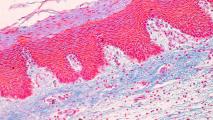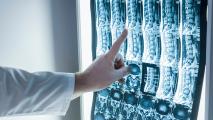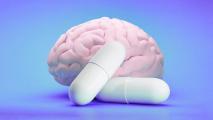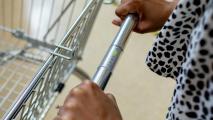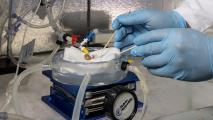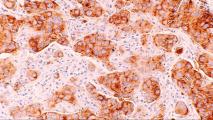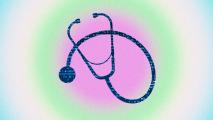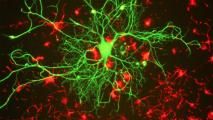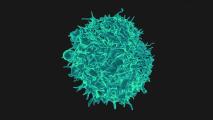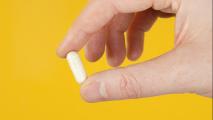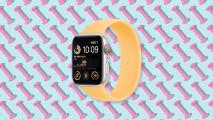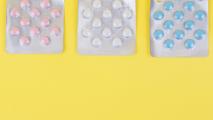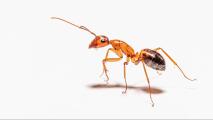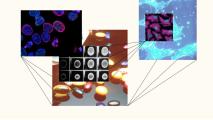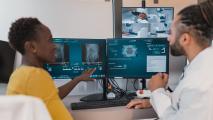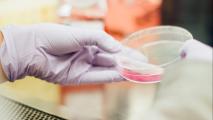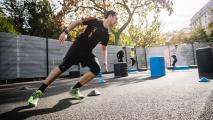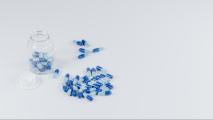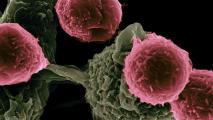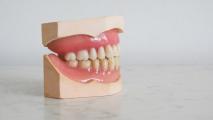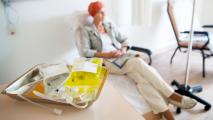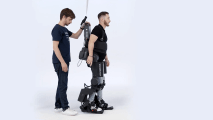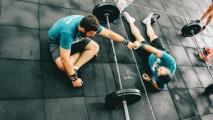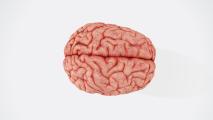Field: Healthcare
Second opinions in the age of ChatGPT
ChatGPT and other AI-powered tools are quietly reshaping how people interpret, challenge, and act on medical advice.
The missing tech case for how we create an era of abundance
AI and other new technologies could make things that are costly and scarce today, cheap and abundant for all tomorrow.
The exciting research that may cure Parkinson’s
GeneCode is developing a drug it hopes won't just alleviate Parkinson's symptoms but also protect and restore patient's neural health.
How smart devices helped me unlock hidden health wins
By measuring many different body metrics, smart health devices can help support the mental game as much as the physical fitness gains.
Last century, we extended our lives. This century, we need to shorten our deaths.
We are living longer lives, while also spending more years sick than ever before — but there are ways to close the lifespan-healthspan gap
AI can help predict whether a patient will respond to specific tuberculosis treatments
Instead of a one-size-fits-all treatment approach, AI could help personalize treatments for each patient to provide the best outcomes.
In a future with brain-computer interfaces like Elon Musk’s Neuralink, we may need to rethink freedom of thought
In a future with more "mind reading," thanks to computer-brain interfaces, we may need to rethink freedom of thought.
A protein found in human sweat may protect against Lyme disease
Human sweat contains a protein that may protect against Lyme disease, according to a study from MIT and the University of Helsinki.
Pacemaker powered by light eliminates need for batteries and lets the heart to function more naturally
Scientists designed a pacemaker that transforms light into bioelectricity, or heart cell-generated electrical signals.
FDA approves weight-loss drug Wegovy to treat heart problems
The FDA has approved the use of Novo Nordisk’s popular weight-loss drug Wegovy to reduce the risk of certain major heart issues.
How frontotemporal dementia, the syndrome affecting Wendy Williams, changes the brain
In contrast to Alzheimer’s, in which the major initial symptom is memory loss, FTD typically involves changes in behavior.
Man feels hot and cold again with prosthetic hand breakthrough
Researchers have built a device that helps users feel temperature through a prosthetic arm. A new study shows it works with high accuracy.
Focus on right now, not the distant future, to stay motivated and on track to your long-term health goals
Research highlights three effective strategies to help you achieve your goals, including prioritizing short-term consequences.
Netflix’s “You Are What You Eat” proves twin studies’ importance to science
What is it that makes twins so special, and how do researchers harness the power of twins? "You Are What You Eat" helps prove their importance.
Inhalable sensors could enable early lung cancer detection
MIT engineers have designed diagnostic particles that can be aerosolized and inhaled to find cancer-associated proteins in the lungs.
A dietician explains “Zepbound,” the newest weightloss drug
Zepbound recently joined the list of obesity-fighting drugs administered as injections that has been approved by the FDA.
No pain, no gain? Science debunks yet another exercise myth
Exercise culture advertises intense workouts as the best way to see gains. But research suggests moderate exercise is better.
Engineers develop a vibrating, ingestible capsule that might help treat obesity
MIT engineers designed an ingestible capsule that vibrates within the stomach, creating an illusory sense of fullness and reducing appetite.
Nutrition professor answers: Does chicken soup really help when you’re sick?
Is chicken soup just a comforting placebo, providing psychological benefit while we’re sick, without an actual therapeutic effect?
Chemobrain is real. Here’s what to expect after cancer treatment.
Chemobrain, or chemofog, can significantly affect cancer survivors' quality of life with its social, psychological, and economic impacts.
New AI predicts cancer survival using epigenetics
Researchers from the UCLA train an AI to use epigenetics to predict clinical outcomes for cancer patients.
Researchers engineer insulin-releasing cells that respond to sound waves
New research in mice attempts to eventually replace insulin injections with the sounds waves of rock music.
These 2 types of exercise can improve brain health in your 80s, new study finds
Older people who regularly engage in aerobics and strength training perform better on cognitive tests.
Study: chronic pain’s root cause could be a process in the brain
Understanding that chronic back pain originates from within the brain could lead to quicker recovery, a new study finds.
Bad sleep worsens pain. Researchers may have discovered why.
Inadequate sleep worsens pain, which makes it difficult to sleep. This cycle may stem from disruptions to the body's endocannabinoid system.
Human brains have a remarkable ability to rewire themselves following injury
Every brain injury is unique, as is every person’s path to recovery. A concussion specialist explains the science behind rehabilitation and recovery.
New ultrasonic technique can destroy toxic “forever chemicals”
We can now use an ultrasonic jackhammer to break apart chemicals
Capsaicin: Could the compound that gives chili peppers their heat treat diabetes and obesity?
Capsaicin, the compound that gives peppers their burn, could help with diabetes and obesity, but only at an uncomfortably high dose.
Cardio improves cognitive function & mental health. Here’s the best way to do it at home.
While many people do cardio exercise to keep physically fit, research shows cardio also improves cognitive function and mental health.
What BMI can’t tell us about our health
Body mass index (BMI) continues to be the go-to tool for medical doctors and population researchers despite saying little about our health.
New weight loss drug acts like an “exercise pill”
A new candidate weight loss drug called SLU-PP-332 was found to boost muscular and aerobic endurance in mice.
“The twin boom”: why twinning is on the rise
Since the 1970s, the rate that twins are born has doubled in most developed countries. What caused this and is it going to change soon?
Exercise scientist explains what your daily step goal should be by your weight
Tracking daily step counts can be a useful tool for weight management, but only if you tailor it to your own body weight.
What the science really says about vitamin D deficiency
When is low vitamin D a potential concern? And when might you need to get your levels tested? Here's what the evidence says.
Stanford plans to put a 3D-printed human heart in a pig by 2028
Using 3D bioprinting, scientists are trying to construct perfect replacements for damaged organs, bones, and tissues.
What does the evidence say about omega-3 fats for heart disease, dementia, and arthritis?
Are fish oil supplements as good for preventing heart disease, dementia, and other health conditions as we think? Or is eating fish better?
New superbug vaccine turns the immune system into “the Hulk”
A superbug vaccine that temporarily puts the immune system on high alert could reduce the number of hospital-associated infections.
These earbuds analyze brain activity and sweat content
A flexible sensor turns a pair of earbuds into a health monitoring device capable of recording brain activity and analyzing sweat.
Is iron the Achilles’ heel for cancer?
Some cancer cells store high quantities of iron. Iron-activated cancer drugs selectively disrupt cancer cells, without harming healthy cells.
Artificial wombs for preemies move closer to human trials
A panel of FDA advisors has met to discuss the development of artificial wombs designed to help extremely premature babies survive.
An implantable device could enable injection-free control of diabetes
MIT engineers designed an implantable device that carries islet cells along with its own on-board oxygen factory to keep the cells healthy.
Spending time in space can harm the human body − but scientists are working to mitigate these risks before we go to Mars
With NASA planning more missions to space in the future, scientists are studying how to mitigate health hazards that come with space flight.
Can you speed up your metabolism? And should you?
Our metabolism is the force inside our bodies that mysteriously decides whether to convert food into energy or weight.
UT med students can now get a dual degree in AI
The University of Texas at San Antonio has launched what it says is the US’s first dual degree in medicine and AI.
Tooth decay: Mouthwash turns your teeth blue when it’s time to go to the dentist
A mouthwash solution containing ferumoxytol and a dye could treat, prevent, and diagnose tooth decay, according to UPenn researchers.
Can’t afford a gym membership? Add these 3 things to your workout routine
With gym memberships and fitness classes are becoming increasingly unaffordable, you can make just as much progress at home.
World-first experiment shows genetically engineered bacteria detecting cancer
Genetically engineered bacteria could be used to detect a range of different diseases, particularly infections and cancers.
Scientists discover a gel that whitens teeth and kills 94% of bacteria
Scientists have found that light-activated oxidizing nanoparticles can whiten teeth without causing damage.
Can you manipulate your brain to stop your food cravings?
Research suggests it may be possible to "switch off" the pleasure we experience from eating certain foods, which could curb cravings.
Too much body fat isn’t the problem — malfunctioning body fat is
When fat cells are overloaded with excess nutrients, they become too big and don't receive enough oxygen, causing them to die.
Scientists make pain relievers like Tylenol from pine trees rather than fossil fuels
Chemists have shown how to manufacture ibuprofen and acetaminophen using a waste product from the forestry and paper industries.
Want to lose weight? Try eating like a pig
From pig studies, we've learned that calorie counting matters, and eating many smaller meals is preferable to a few larger ones.
AI will soon tell doctors how to predict your future health
A new AI can can analyze X-rays for a important predictor of heart disease with a high degree of accuracy.
ADHD drugs could alleviate symptoms of Alzheimer’s
Scientists reviewed 40 years of clinical studies that assessed the effects of NA-targeting drugs, such as certain ADHD drugs, on Alzheimer’s.
Fiber is your body’s natural guide to weight management
Fiber is important not just for happy bowel movements, but also for your blood sugar, weight, and overall health.
Exercise may or may not help you lose weight and keep it off
There isn’t a debate on the overall health benefits of regular exercise, but scientists don't agree on whether it actually keeps weight off.
Can we train our taste buds for health?
Reformulating foods tailored to the plasticity of our taste buds could be a practical and powerful tool to promote health.
These shopping carts can tell if you have a common heart condition
A UK study found that ECG sensors placed in shopping cart handles can be used to detect atrial fibrillation (AFib).
Cryogenically frozen organs successfully transplanted into rats for the first time
Thanks to a new "nanowarming" technique, scientists have successfully transplanted cryogenically frozen organs into rats for the first time.
Certain diets can starve cancer cells
Low-calorie, intermittent-fasting, and ketogenic diets all can lower the amount of blood glucose available to fuel cancer cells.
New “AI doctor” predicts risk of death with 85% accuracy
A new AI was able to make accurate predictions about patients’ risk of death, readmittance, and more by analyzing medical notes.
Scientists are growing animals in artificial wombs. Humans might be next.
Artificial wombs promise to give people a way to have biological children without putting their own health at risk.
Sound waves can trigger torpor-like state in mice and rats
Ultrasound stimulation triggers a torpor-like state in animals, suggesting a noninvasive way to put people into the state.
The radical drop in maternal mortality was a public health miracle
In 1758 in Sweden, 1205 mothers died for every 100,000 live births, which was likely representative of the global maternal mortality rate.
Adult-made neurons mature longer, have unique functions
Neuroscientists don't know the degree to which adult brains generate new neurons, but adult-made neurons appear to have more "mature" functions.
Chronic pain can be objectively measured using brain signals
Even though pain is universal and we know it happens in the brain, we've never before had a way to objectively measure its intensity.
Do we finally know what causes Alzheimer’s?
The first treatments proven to slow cognitive decline in Alzheimer’s are helping settle a decades-long debate about how the disease starts.
This new watch-like wearable measures blood pressure 24/7
A Swiss company has developed a lightweight, comfortable bracelet which can provide constant and accurate information about blood pressure.
The AI healthcare revolution has begun
The ability of AI to diagnose diseases, discover drugs, and even perform surgery is increasing rapidly — but will patients accept Dr. AI?
Like hungry locusts, humans can easily be tricked into overeating
Our bodies crave more food if we haven’t had enough protein — especially if we’re reaching for ultraprocessed foods.
The groundbreaking plan to map the entire human immune system
Powered by AI and a vast trove of data, the Human Immunome Project aims to fully map the most complex system in the human body.
Rapamycin: The unlucky history of the most powerful anti-aging drug
When rapamycin research was revived, it was found to have both anti-cancer and anti-aging properties. Here's what researchers say today.
AI helps terminal cancer patients make the most of their final days
An AI that encourages doctors to talk to cancer patients about their end-of-life care impacts how they choose to live out their final days.
Insiders say Apple is building an “AI health coach”
Tech giant Apple is developing an app with an AI health coach to help you live a healthier lifestyle, according to a Bloomberg report.
The vicious cycle of food and sleep
More than a third of Americans don’t log enough hours in bed, provoking serious health impacts. Diet is an important, under-recognized reason.
How “centaur AI” will radically reshape the future of healthcare
With healthcare, it is not enough to spot patterns: we need to understand biological mechanisms. Ai can help us do it.
The imagination effect: A history of placebo power
The famous placebo effect has a long, rich history — it certainly had an outsized role in the medicine of centuries past.
Dignity therapy: Making the last words count
Guided conversations with the terminally ill are popular with patients, families and doctors. But are they truly beneficial?
Scientists train ants to sniff out cancer in just 30 minutes
Ants were just as accurate as cancer-sniffing dogs. Better yet, they could be trained in minutes rather than months.
Some cancers shouldn’t be treated
We're detecting and aggressively treating more tumors than ever before. But we're also over-treating more cancers then ever.
One way to speed up clinical trials: Skip right to the data with electronic medical records
It takes around 17 years for medical research to translate into clinical practice — why not use EMR data to speed things up?
Standing on a vibrating platform could deliver some of the same benefits as exercise
The reason whole-body vibration training is gaining interest is because it’s far easier to do than regular exercise.
Saliva: The next frontier in cancer detection
Scientists are finding tumor signals in spit that could be key to developing diagnostic tests for various types of cancer
What that study linking sugar-free sweeteners and heart disease really tells us
A new study links higher blood levels of sugar-free sweeteners, commonly found in ketogenic diet foods, to a greater risk of death.
Does online opioid treatment work?
A sudden shift to virtual health care has increased access — and possibly outcomes — for patients with opioid use disorder.
Exercise is even more effective than counselling or medication for depression
A recent study showed exercise is an effective way to treat mental health issues – and can be more effective than medication or counselling.
Tirzepatide: A novel obesity drug ushers in a new era of weight loss — because this one works (Updated)
Patients who received tirzepatide in a recent clinical study lost more than 20% of their body weight (52 pounds, or 23.6 kg).
Oral bacteria trigger rheumatoid arthritis flare-ups
Periodontal (gum) disease is more common in individuals with rheumatoid arthritis, implicating the former in causing the latter.
Small wonders: The antibodies from camels and sharks that could change medicine
A handful of animals make a pared-down version of our own antibodies. Scientists hope to harness them as treatments for human illnesses.
A new look at the strange case of the first gene-edited babies
Did He Jiankui "Make People Better"? A new documentary leans toward a different narrative about gene-editing than we've heard before.
How diet influences the conflict between cell “cooperators” and “cheaters”
Cancer-protective microbes support cooperative behaviour by bodily cells, but cancer-inducing microbes undermine it.
Yoga: Modern research shows a variety of benefits to both body and mind from the ancient practice
Researchers have begun to study yoga's effects and are finding that it has great benefits for both mental and physical health.
New evidence that teeth can fill their own cavities
Researchers find that, in some cases, tooth dentin can be regrown instead of needing to be replaced with man-made composite.
Simple tweak to cancer treatment reduces relapse risk by 28%
Delivering chemotherapy to colon cancer patients before and after surgery — instead of just after — reduces their risk of recurrence by 28%.
First-of-its-kind exoskeleton for stroke rehab cleared by FDA
The FDA has cleared Wandercraft's self-balancing, hands-free Atalante exoskeleton for use during stroke rehab.
Study suggests that exercise should be prescribed to mental health patients
Researchers concluded that exercise should be prescribed to patients with mental health issues before psychiatric drugs.
New study finds 5-minute hack to balance sitting all day at work
Researchers set out to find the least amount of walking one could do to offset the harmful health effects of sitting.
“Jumping genes”: A new model of Alzheimer’s
A new hypothesis suggests that Alzheimer's disease is the result of "jumping genes" in the brain, not inflammation or plaque.



